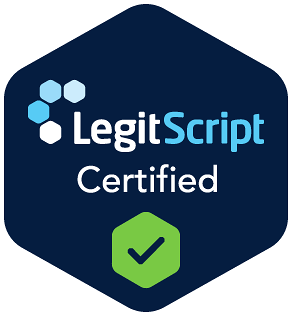When it comes to addiction, most of the attention is paid to the addicted person. But addiction can be far-reaching, affecting everyone in that person’s orbit. This can be friends, co-workers, members of the community, and especially family. For the family of someone with substance abuse, addiction can cause emotional distance, broken trust, unhealthy dynamics, and deep-rooted pain.
At Amity San Diego, we recognize that healing from addiction is not a solo journey. Family therapy for addiction is a powerful and essential part of the recovery process, helping families reconnect, understand one another, and move forward together.
What is Family Therapy for Addiction Treatment?
Mental health professionals who are trained in family therapy often utilize a variety of evidence-based techniques. These include:
- Structural Family Therapy: This approach focuses on restructuring family roles and hierarchies to encourage healthier boundaries and communication.
- Strategic Family Therapy: Here, the therapist identifies specific patterns of interaction that contribute to dysfunction and works to shift those behaviors with targeted interventions.
- Systemic Therapy: This technique examines the beliefs and rules governing the family system, aiming to challenge and change unhealthy narratives or cycles.
- Cognitive-Behavioral Family Therapy (CBFT): CBFT helps individuals and families understand how their thoughts affect emotions and behaviors, promoting positive change through cognitive restructuring and skill-building.
- Narrative Therapy: Families are encouraged to separate themselves from their problems by identifying destructive narratives and rewriting them in a more empowering way.
- Communication Skills Training: One of the core aspects of family therapy, this helps family members express themselves more clearly and listen more effectively to one another.
All these techniques are part of the same overarching goal: to provide a supportive and safe space for families to express their feelings, acknowledge shared pain, and learn new ways of relating to each other as they support their loved one through recovery.
How Family Therapy Can Help with Addiction
Here are just some of the ways that family therapy can help with both addiction and addiction treatment:

A strong support system significantly improves recovery outcomes. Through family therapy, loved ones can learn how to provide this support in a healthy manner for all parties by offering encouragement while also maintaining the necessary boundaries.
By offering support to the addict, the family can help in:
- Reducing feelings of guilt and shame
- Encouraging accountability without enabling destructive behavior
- Providing emotional safety and reassurance
- Reinforcing motivation to stay in recovery
Substance use often leads to secrecy, lies, and broken promises, deeply damaging trust between loved ones. Family therapy creates a space for honest communication, where family members can address hurt feelings, rebuild trust, and learn to speak openly without judgment or fear.
Therapists can help with:
- Conflict resolution strategies
- Active listening and emotional validation
- Reframing harmful narratives and assumptions
Whether intentional or not, certain family dynamics (such as codependency, enabling, or emotional neglect) can contribute to or be exacerbated by substance use. Family therapy often helps uncover these patterns and introduces healthier alternatives.
Some examples include:
- Addressing codependent tendencies, where a family member’s self-worth is tied to the addict’s behavior.
- Helping parents stop enabling children’s behavior and instead provide structured support.
- Teaching children in the family how to process trauma or emotional disruption caused by addiction.
For many, the struggles inside the household stem from a lack of true knowledge and understanding of addiction. Despite the efforts of many, there is still a preconceived notion that addiction is a choice and not a disease.
Family therapy, in addition to everything mentioned above, also provides education so that family members and loved ones can better understand the complicated nature of addiction, such as:
- The science of addiction as a brain disease
- How triggers and cravings work
- What relapse means and how to respond with support
- The stages of recovery and healing
By gaining this valuable knowledge, family members gain the ability to react and respond with compassion, rather than confusion or anger, when challenges arise.
Addiction affects each family member differently. Parents may carry guilt, siblings may feel ignored, and partners may carry resentment. Family therapy ensures that every voice is heard and every person begins their own healing journey. As each member grows, the family as a whole becomes stronger.

Other Therapy Treatments for Addiction
DBT is a form of cognitive-behavioral therapy that emphasizes emotional regulation, distress tolerance, mindfulness, and interpersonal effectiveness. It’s especially beneficial for individuals struggling with substance use and co-occurring disorders, such as borderline personality disorder, post-traumatic stress disorder (PTSD), or chronic self-harm behaviors.
In addiction recovery, DBT helps with:
- Coping with cravings and urges without acting on them
- Regulating mood swings and intense emotional reactions
- Improving communication and relationship skills
- Developing a stronger sense of identity and purpose
EMDR is a trauma-focused therapy that helps individuals process painful memories and experiences without becoming overwhelmed. Because unresolved trauma is often a root cause of addiction, EMDR can be a powerful tool in long-term recovery.
Benefits of EMDR in addiction treatment include:
- Reducing flashbacks, anxiety, and emotional reactivity
- Breaking the link between trauma and self-medicating behavior
- Reprocessing negative beliefs that drive addictive cycles
- Supporting long-term emotional stability and resilience
Far too often, those suffering from substance abuse and addiction find themselves isolated and alone. Group therapy provides a safe and supportive environment for those in treatment to come together to share experiences, receive peer feedback, and build a sense of community.
In group settings, participants:
- Hear stories with similar struggles as their own
- Gain insight into their behavior from others’ perspectives
- Practice social and communication skills
- Learn from each other’s successes and setbacks
Group therapy often complements family therapy by helping the individual develop support both inside and outside their family network.
As discussed above, family therapy can be both a standalone treatment and an essential part of an overall comprehensive treatment plan. Sessions can involve parents, siblings, spouses, or chosen family members, depending on what’s most beneficial for the healing process.
Holistic therapies provide alternative ways to process and recover from addiction. Like family therapy, they can be used as a standalone treatment or, more commonly, can be used to complement more traditional treatment methods.
Examples of holistic therapy include:
- Yoga
- Meditation
- Art and music therapy
- Nature therapy
- Nutritional counseling
These therapies support lasting recovery by helping those in treatment find joy, connection, and wellness in sober living.
Receive Support for Mental Health Including Family Therapy for Addiction at Amity San Diego
At Amity San Diego, we believe that healing happens in relationships. That’s why family therapy is a core component of our treatment model. We offer:
- Licensed therapists specializing in addiction and family systems
- Individualized treatment plans that include family therapy options
- Integrated care for co-occurring mental health conditions
- Flexible programming, including different levels of care
- A welcoming, compassionate environment where every family is treated with dignity and respect
Contact us today to learn more about our programs and how we can support your family’s journey to wellness.
Verify Your Insurance
We understand that navigating the financial aspects of treatment can be challenging. Amity San Diego is here to help. Our team works with many insurance providers to make treatment as accessible as possible. Click below to verify your insurance and learn more about your coverage options. Our admissions team will guide you through the process and answer any questions you may have.








